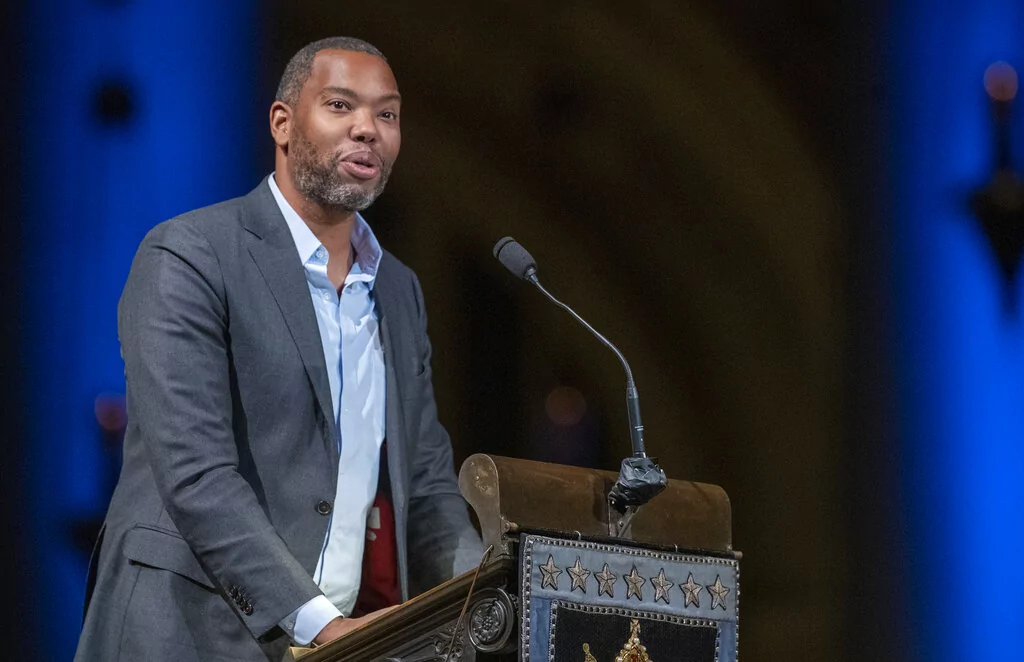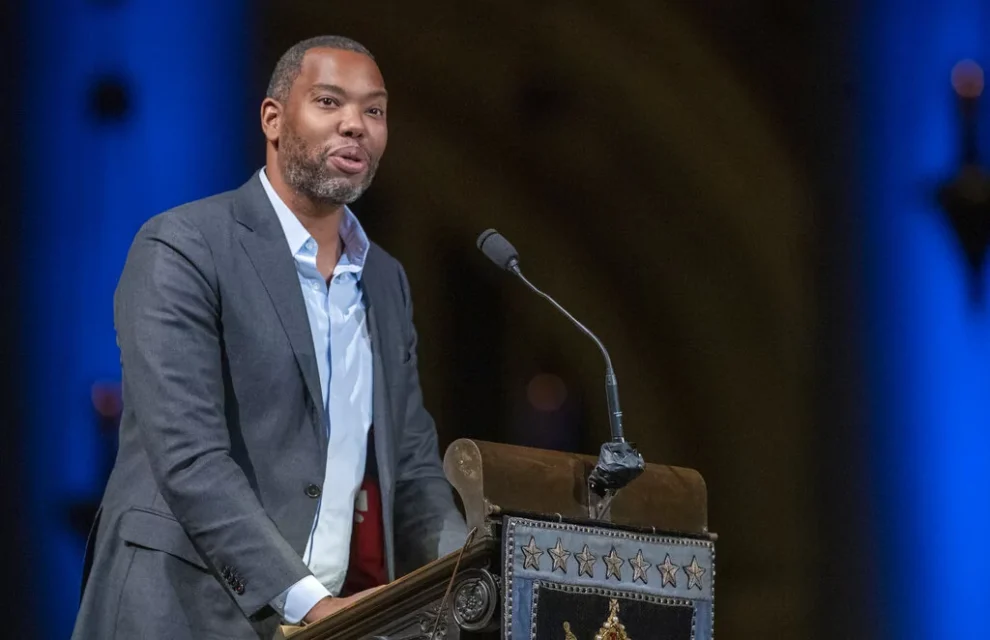CBS News chiefs suggested that top anchor Tony Dokoupil violated the network’s standards of “neutrality and objectivity” after he pressed an anti-Israel activist on his controversial rhetoric.
When Ta-Nehisi Coates joined CBS Mornings last week to discuss his new book The Message, Dokoupil questioned the bestselling author about some of the assertions in the “Israel-Palestine section of the book.”
“If you took your name out of it, took away the awards and the acclaim, took the cover off the book, the publishing house goes away—the content of that section would not be out of place in the backpack of an extremist,” Dokoupil said.
“Why leave out Israel is surrounded by countries that want to eliminate it? Why leave out that Israel deals with terror groups that want to eliminate it?” he asked Coates.
Ta-Nehisi Coates’ new book, “The Message,” is a trio of interconnected essays that examine how the stories people tell — or avoid telling — can shape and even distort reality: “I am most concerned always with those that don’t have a voice.” https://t.co/bDsBxZMbah pic.twitter.com/G4WCkI146I
— CBS Mornings (@CBSMornings) September 30, 2024
CBS News’s Adrienne Roark, who is the president of content development and integration, criticized the anchor during an all-staff meeting on Monday morning.
“There are times we fail our audiences and each other. We’re in one of those times right now, and it’s been growing. And we’re at a tipping point. Many of you have reached out to express concerns about recent reporting. Specifically about the CBS Mornings Coates interview last week,” Roarks said according to the Free Press‘s audio of the staff meeting.
“I want to acknowledge and apologize that it’s taken this long to have this conversation,” she continued as she urged staff “to check our biases at the door.”
CBS CEO Wendy McMahon backed her colleague up, although the network’s chief legal correspondent, Jan Crawford, pushed back on the chief executives’ criticism.
“It sounds like we are calling out one of our anchors in a somewhat public setting on this call for failing to meet editorial standards for, I’m not even sure what,” Crawford said. “I thought our commitment was to truth. And when someone comes on our air with a one-sided account of a very complex situation, as Coates himself acknowledges that he has, it’s my understanding that as journalists we are obligated to challenge that worldview so that our viewers can have that access to the truth or a fuller account, a more balanced account. And, to me, that is what Tony did.”
“Tony prevented a one-sided account from being broadcast on our network that was completely devoid of history or facts,” Crawford added. “As someone who does a lot of interviews, I’m not sure now how to proceed in challenging viewpoints that are obviously one-sided and devoid of fact and history.”
Coates’ book argues that Palestinian people are living under the racist and colonialist occupation of Israel.
Denying even that the history of Israel might be “complicated,” he writes that “I don’t think I ever, in my life, felt the glare of racism burn stranger and more intense than in Israel.”

“It’s complicated when you want to take something from somebody,” he said as he claimed Palestinians were forced to live in a “world where separate and unequal was alive and well, where rule by the ballot for some and the bullet for others was policy.”
Pressed during a recent NPR interview on concerns that The Message perpetrated anti-semitism, Coates said “Well, if that’s how you feel, that’s how you feel, I can’t really influence that.”
During the same interview, Coates was asked to address concerns that The Message could fuel the antisemitic narrative that “Jewish people control the media.”
CLICK HERE TO READ MORE FROM THE WASHINGTON EXAMINER
“I meant exactly what I said,” Coates replied. “I would like to know the number of Palestinians that are working at a major Bureau for a major outlet, be that TV, newspaper, magazines.”
In comments to the Atlantic, Coates added that the “industrialized genocide” of the Jewish people during the Holocaust didn’t provide justification for the founding of the nation of Israel after World War II.
























